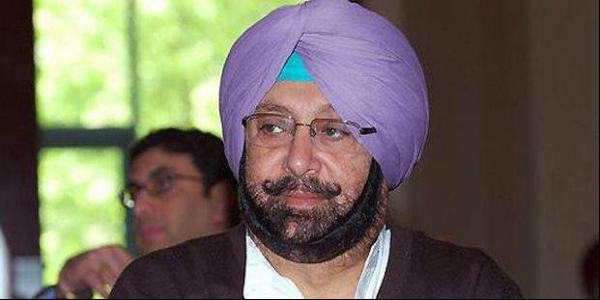The Supreme Court has issued directions to the state governments of Punjab, Haryana and Uttar Pradesh to give financial assistance to farmers to manage crop residue so that they do not resort to stubble burning. The apex court directed the three state governments and asked them to provide support of Rs. 100 per quintal to those small and marginal farmers who haven’t yet burned stubble on their fields. The states have been given a period of seven days to render this support.
The Court said, “Agriculture is the backbone of our country’s economy and it is the bounding duty of the State to look after the interest of farmers. It is absolutely necessary that small and marginal farmers are provided with necessary machines to prevent stubble burning.” The Court’s remarks come in the backdrop of rising air pollution in Delhi. A major cause of the rising pollution levels in Delhi is stubble burning in the states of Punjab and Haryana. SAFAR has stated that the share of stubble burning in Delhi’s air pollution has increased to 46 per cent. The Court also expressed shock and worry over the issue of rising pollution and said, “Can you permit people to die like this due to pollution? Can you permit the country to go back by 100 years”.
The two-judge bench consisting of Justice Arun Mishra and Justice Deepak Gupta also stated that it is “shocking” to see that even the National Capital has unpaved routes and pits. Justice Mishra said, “This is the national capital. Do you want us to send you to America on government funds so that you can see and learn how they deal with such things (pollution)…that too in villages?” He also asked the governments about how they are using the developmental funds received from the World Bank and other international organisations. Justice Mishra said, “So much money has come. Where is the concept of smart city? Why has road quality not improved? Despite the pollution levels, construction activities are still going on in Delhi. Look at the level of pollution. Please take strict action against violators.”
Coming down heavily over the issue of pollution, the apex court said, “Punishment of farmers is not a solution – then there will be law and order problems. The government has to provide basic amenities. You are not doing that. Sitting in ivory tower and rule the state! You will also not survive if stubble-burning is allowed”. Admonishing the Punjab Chief Secretary, the Supreme Court bench stated, “Is this the way? We will suspend from here. Why are you the Chief Secretary of Punjab? It is your failure.” The Court also observed, “If Haryana can control it (stubble burning) , why not Punjab? Nobody tried organic means”.
It is relevant to mention here that while the practice of burning crop residue has seen a decline in Haryana, it has peaked in Punjab with a 25% spike in stubble burning in the state. Punjab alone has reported 22,137 cases of stubble burning so far. Recently, India Today journalist, Rahul Kanwal also raised questions on Punjab Administration and CM Capt. Amarinder Singh for their passivity. He tweeted “It’s clear from these satellite maps that maximum concentration of live farm fires is in Punjab. @capt_amarinderhas failed royally in his duty to ban stubble burning. CM unwilling to enforce law against his vote bank. @mlkhattar @myogiadityanath have done a relatively better job.”
It’s clear from these satellite maps that maximum concentration of live farm fires is in Punjab. @capt_amarinder has failed royally in his duty to ban stubble burning. CM unwilling to enforce law against his vote bank. @mlkhattar @myogiadityanath have done a relatively better job pic.twitter.com/qXGux8qI1c
— Rahul Kanwal (@rahulkanwal) November 5, 2019
It is now clear that it is the Punjab government which has failed to altogether curb the menace of stubble burning which has led to a spike in air pollution levels in entire Northen India in general and Delhi-NCR in particular. Even the apex court has observed that Haryana has been able to control it, but the Punjab government has failed.
Recently, the Punjab CM claimed to have taken action against 3,000 farmers in the state, but that has clearly failed to bring an end to this menace. He has instead requested the Centre to find a solution, which is rather absurd. The menace of stubble burning is purely a local issue, which the concerned State government, viz. Punjab government in the present case must resolve by itself. It is beyond comprehension why it should look upto the centre over this issue, especially when the government in the neighbouring state of Haryana has shown how stubble burning can be effectively tackled. With the Supreme Court coming down heavily over the issue of stubble burning and rising air pollution, the Punjab government must formulate an effective action plan and check stubble burning instead of making excuses and seeking Centre’s support.
